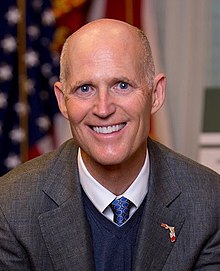2016 Florida Alimony Reform Bill Vetoed
The Tampa Bay Times is reporting that Florida Governor Rick Scott has vetoed SB 668, a bill that was intended to make large-scale changes to the state’s alimony and child custody laws.

For the first time, the bill was set to create alimony guidelines that calculated a presumptive range for the amount and length of spousal support. Further, the bill would have directed judges, when establishing custody schedules, to start out with the premise that each parent should have approximately an equal amount of time with children.
It was that second point that seemed to be the sticking point for Governor Scott.



